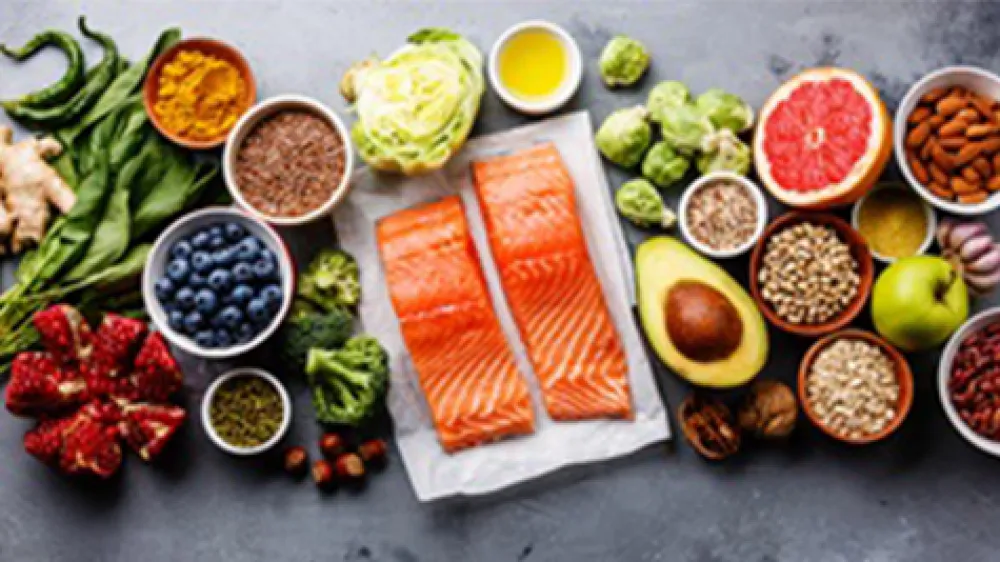Providing your location allows us to show you nearby locations and doctors.
Foods That Help Fight Inflammation

There’s a lot of buzz these days about eating an “anti-inflammatory diet.” But what does that actually mean? And why is it beneficial? Inflammation is the immune system’s natural response to an injury or infection. It can be very helpful when needed. But when it lasts too long, inflammation can have long-term, negative effects on your body.
By building your diet around anti-inflammatory foods, you can help protect your health.
What to Eat to Help Fight Inflammation
- Fish contain inflammation-fighting omega-3 fatty acids. Among the best choices are salmon, albacore tuna, mackerel, herring, lake trout, and sardines.
- Nuts are full of healthy fats that help combat inflammation. Good choices include walnuts, almonds, pistachios, and pine nuts. Keep in mind that nuts are also packed with calories, so don’t overdo it.
- Fruits and vegetables are high in antioxidants, which support a healthy immune system and may decrease inflammation. Good choices include blueberries, blackberries, strawberries, cherries, spinach, kale, broccoli, and carrots.
- Beans contain anti-inflammatory and antioxidant substances. The best options include pinto, red kidney, black, and garbanzo beans.
- Whole grains are another key part of a healthy, anti-inflammatory diet. One caveat: Gluten—a protein found in wheat, barley, and rye—may trigger inflammation in some people who are sensitive to it. Gluten-free whole grains include brown or wild rice, quinoa, buckwheat, and certified gluten-free oats or oatmeal.
And Which Foods Should You Avoid?
Other foods have the opposite effect, increasing inflammation. Limit foods that contain:
- Saturated fat (such as red meat and cheese)
- Trans fat (such as many fast foods and processed snacks)
- Refined grains (such as white bread and white rice)
- Added sugars (such as sweets and sugary drinks)
When it comes to your health, you really are what you eat—and what you don’t. An anti-inflammatory diet helps safeguard your well-being.
Talk with Your Primary Care Provider
If you’re thinking about doing a complete diet overhaul, meet with a primary care provider (PCP). He or she can help you find an eating plan that fits your body’s specific needs. Click here to learn more about partnering with your PCP—in sickness and in health!